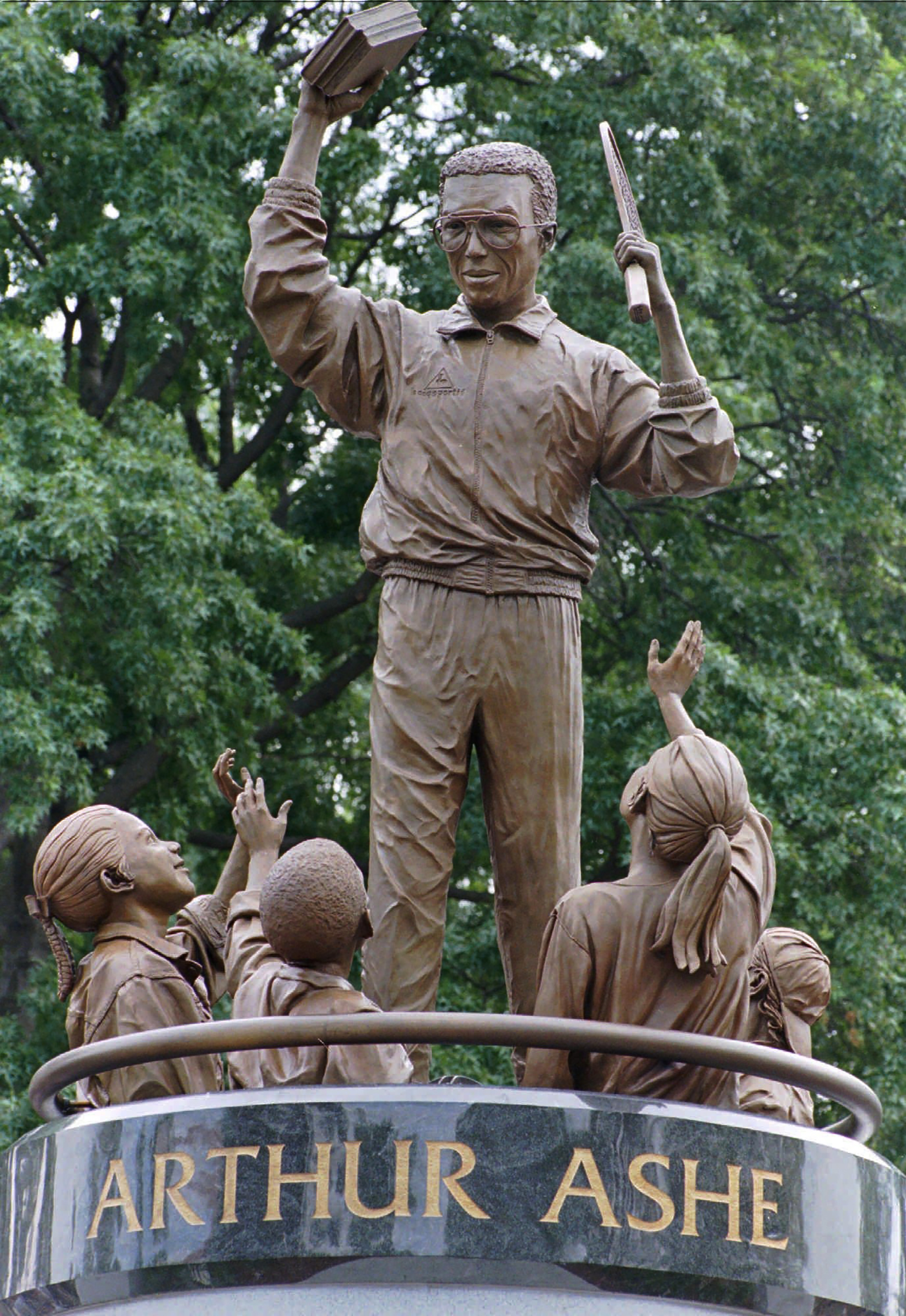
If you drive far enough down Monument Avenue in Richmond, Va., past the statues of Confederate leaders General Robert E. Lee and President Jefferson Davis, you’ll find a bronze likeness of native son Arthur Ashe, the tennis legend and activist, holding books and a racket. A few miles to the east is the Virginia Civil Rights Memorial, not far from a statue of Abraham Lincoln.
This is how the former Confederate capital has dealt with the weight of history: not by removing troubling monuments, but by adding to them. It’s a different approach than the one taken by many Southern cities and towns, which have been roiled by the push to remove monuments to Confederate leaders and prominent slaveholders. From St. Louis to Orlando, from New Orleans to Charlottesville, Va., the prospect of the statues’ coming down has led to angry, sometimes violent protests among those who see them as vital to their heritage and others who see them as emblems of hate.
Yet in Richmond, which has no shortage of public memorials to defenders of white supremacy, there has been comparatively little outcry. The reason, say many residents and historians, is that the city has been working for decades to reinterpret its past, updating older tributes with much-needed context while adding new ones to the canon.
“Richmond has a pretty long history in dealing with these things,” says David Goldfield, a professor of history at the University of North Carolina at Charlotte and an expert on Civil War symbolism. The city has “had the time to reach a consensus.”
Part of it is representation. Unlike many other Southern cities, Richmond elected its first black city-council member in the 1940s and had a black mayor and a majority-black city council by the 1970s. “Once you have that in place,” says Civil War historian Kevin Levin, “you begin to shift or shape the public discussion about what kind of history you’re going to commemorate.”
Richmond was never going to pave over its Confederate past; Civil War tourism is too valuable to the local economy. But the civic discussion that began decades ago resulted in addition rather than subtraction. In 2003, seven years after the city erected the monument to Ashe, officials installed the memorial to Lincoln. Later, the Richmond Slavery Reconciliation Statue went up near Shockoe Bottom, a former slave market. On July 15 the city will unveil a statue of Maggie Walker, the first black woman to charter a bank, and the National Park Service will conduct walking tours about her life.
As important are the symbols Richmond chose not to pursue. In 2008 the Sons of Confederate Veterans offered to finance a statue for the American Civil War Museum of Jefferson Davis holding hands with a mixed-race child who was cared for by the Davis family. The plan collapsed after museum officials didn’t commit to presenting it in a way favored by the Confederate group.
There are residents who don’t think Richmond’s hybrid approach goes far enough. Ana Edwards, chair of the Sacred Ground Historical Reclamation Project, is pushing for the city to place its Confederate memorials in a museum or at Hollywood Cemetery, where thousands of Confederate soldiers are buried. “We think they will come down,” Edwards says. “But no politician is willing to take it on.”
For now, she’ll find few allies in city hall. Instead, Mayor Levar Stoney is creating a commission to further contextualize the city’s Confederate memorials, which could mean adding explanatory plaques to existing statues or building additional monuments. The commission, he says, will invite public input and “take a deliberative, reasoned approach” to reinterpreting the city’s history.
“I want Richmond to tell the whole story of its people,” Stoney tells TIME. “Not just a one-sided story of the Lost Cause and the Confederacy. Right now we have an opportunity in our history to redefine who these people were.”
That will mean more changes along Monument Avenue. But in a living museum, there’s always room to add to the collection.
More Must-Reads from TIME
- Donald Trump Is TIME's 2024 Person of the Year
- Why We Chose Trump as Person of the Year
- Is Intermittent Fasting Good or Bad for You?
- The 100 Must-Read Books of 2024
- The 20 Best Christmas TV Episodes
- Column: If Optimism Feels Ridiculous Now, Try Hope
- The Future of Climate Action Is Trade Policy
- Merle Bombardieri Is Helping People Make the Baby Decision
Contact us at letters@time.com